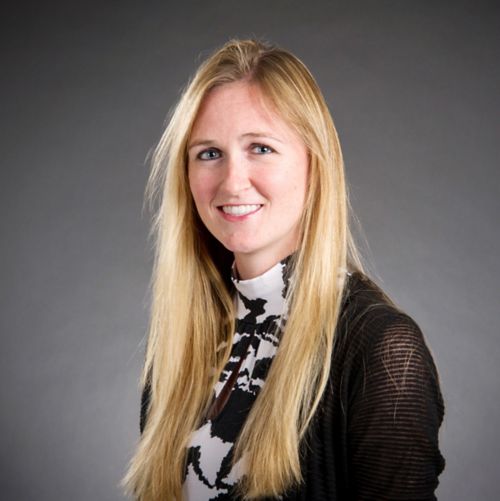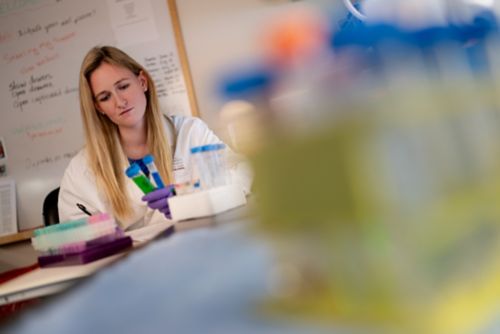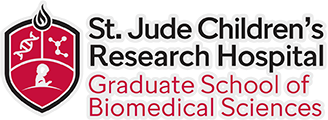
Caitlin Zebley, MD
PhD student, St. Jude Graduate School
When I was a college student, I analyzed ozone in the middle atmospheres of Mars. That’s a long way from working as a pediatric hematology/oncology fellow at St. Jude. While the subject matter of these two activities is starkly different, the scientific foundations framed my career choice.
As a St. Jude fellow, I pursued a basic science research project in the immunology lab of Ben Youngblood, PhD. The work involved T cells – specifically T-cell memory and exhaustion. T-cell exhaustion is the progressive loss of T-cell function in response to chronic exposure to a foreign entity the white blood cells are fighting.
Immunology as a cancer treatment
Youngblood’s lab investigates ways the body can fight tumors. T-cell exhaustion is one focus.
When treating tumors, maintaining T-cell function is important. Many therapies, including immune checkpoint blockade and chimeric antigen receptor cell therapy (CAR T-cell therapy), either boost T-cell function or engineer the cells to specifically target the tumor.
This research piqued my interest in pursuing a career as a physician-scientist. St. Jude is the best place for me to pursue this.
The intersection of science and patient care

I was first author of a recent Nature Immunology paper that detailed how the immune system attacks the body’s own cells in people who suffer from Type 1 diabetes. As with many scientific discoveries related to disease, the finding may apply to other disorders, namely cancer.
Our lab created an atlas, a roadmap of sorts, of CD8 T cells. This atlas showed how the cells were groomed over generations to attack insulin-producing islet cells in the pancreas. We found the cells have a biological dual personality. This allows the T cells to make additional copies yet retain their ability to attack islet cells. From there, we analyzed the data to understand the differentiation of the T cells. We found sites across the T cells’ genome that can predict a T cell’s differentiation. (You can read more about the paper here.)
Insights from this atlas can be applied to cancer immunotherapies, where we can engineer T cells to recognize and selectively attack tumor cells. In addition, we can measure how effective those engineered T cells would be in attacking cancer cells and understand the nature of T-cell activity in chronic viral infections.
As the first author, I had the opportunity to participate in all aspects of the investigation, from formulating ideas and executing experiments to synthesizing conclusions and documenting our findings.
A perfect environment for science and medicine
I began as a pediatric hematology oncology fellow in 2015. I wanted to help translate laboratory findings to clinical care and take research from the bench to the bedside.
Now I am pursuing my doctorate at the St. Jude Graduate School of Biomedical Sciences. I have the opportunity to see the relationship between scientific research and bedside treatment. Getting additional training in basic science has laid a solid foundation for me to become an independent investigator.
As immunotherapies move to the forefront of cancer treatment, it’s imperative for oncologists to gain a deeper understanding of the immune system. Following graduate school, I plan to specialize in bone marrow transplantation and cellular therapy. Expertise in immunology, and especially T-cell biology, provides an exceptional foundation for designing innovative T-cell–based immunotherapies in the future. And St. Jude is the perfect place for that.
Read more in “Learning more about T cells through studying behavior in Type 1 diabetes,” by Ben Youngblood, PhD, Graduate School Faculty.

